|
0 Comments
Episode 113 - 8 Hours a Day... The Thursday Thesis - 23/08/2018 For as long as I can remember I’ve been interested in sleep. Sleep fascinates me. More accurately I’ve been interested in doing without sleep for most of my adult life. As a kid I tried to stay awake all night - night after night – in the hope that I’d be able somehow to forget to sleep once I’d established the habit. I reasoned that if I could eliminate sleep from my routine I’d have more time to read and learn, then I’d eventually know everything and life would be better. It’s funny what you believe as a kid, isn’t it? But, to a certain extent I still have the idea in my tiny, pea-sized brain, and I still have a load of unanswered questions about sleep:
Today I’m just going to stick to question 11 – “Who says we should sleep for 8 hours a day?” Well, first of all, my mum did. But I wasn’t going to take it at face value, so for years I experimented with sleep patterns of varying lengths whilst I worked shifts at a busy casino in Birmingham. Some days I’d get a long eight hour-ish sleep, and sometimes I’d only sleep 3 or 4 hours between 14 hour double shifts, bookended by my 20 miles there, twenty miles back cycle ride into the city. Ever since then I’ve slept only 5 hours a night, and I’m not alone in this – several of my friends are short-sleepers, too. Medicine would probably tell us to try to get 8 hours... Why 8 Hours? It seems to have evolved since the 17th century, when street-lamps were installed in Paris, Amsterdam, and London. With the coming of streetlights, being abroad at night became less dangerous, and mentions of the traditional/natural two-phase sleep pattern began to fade from contemporary literature and documents. Humans were – until that time – accustomed to a two-part, or “biphasic” sleep pattern, with a “First Sleep” of around four hours, a period of two or three hours of wakefulness, then a “Second Sleep” lasting another four hours or so. This appears to be the natural way we sleep, according to psychiatrist Thomas Wehr. Wehr observed a group of volunteers subjected to 14 hours per day of darkness. Within a few weeks, the group adopted the two-sleep routine without any prior knowledge of it, suggesting that this pattern is a biological norm when artificial light is absent. But that’s still eight hours of sleep every day, which seems to be a lot. Eight hours kip is a third of my life, and I’ve got better things to do with my time than have strange dreams, snore and suspend breathing for long periods of time before violently sucking in air like a man surfacing from a deep lake. So now I sleep between 3 and 4 hours a night, but take one or two naps of 8-10 minutes each during the day, multiple-sleep pattern is known as “polyphasic sleep”. This means that my total time spent sleeping every day is only 4.5 hours per day, saving me 3.5 hours per day compared to the monophasic 8-hour model. So, 7 days a week I have an extra 3.5 hours of awake time: that’s 24.5 hours more awake time, every week – an eight-day week! Is this good? Maybe... I get a lot done, but there are downsides, too: society isn’t geared-up for oddballs with unconventional sleeping habits, and no sane woman is going to put up with my crazy nocturnal habits. Now, if I could just eliminate the residual sleep I do need, I’d have time to think up a solution to that problem... It’s just a thought, but everything begins with a single thought... © Neil Cowmeadow 2018
Please Like and Share The Thursday Thesis with your friends, family, your cat, unicorn and anyone else. I’d love to hear your comments, along with any ideas you’d care to hurl at me. info@NeilCowmeadow.com The Thursday Thesis - 24/05/2018 “One HUNDRED blog posts! How cool is that?” I gushed as I drove Alex to school last Thursday morning.I'd jammed my moonface into "Smug" mode and It wasn't getting any better... The Urchin wasn’t impressed: he never is these days. This week his affectation is being “utterly indifferent” to all suggestions and ideas that don’t involve him spending his entire weekend playing games online with school-friends. The joys of parenthood... “So, Dad” he asked, “why do you write your blog – what’s it actually for?” I paused, and said “It’s a good question, when you stop to think about it: why does anyone write, especially when there is no expectation of reward?” “So...?” he said. “Firstly, Alex, I write for you. I hope that you’ll read my ramblings and “get it” – that you’ll have access to some of the things I’ve found useful, and have that access at a younger age than I did.” “And secondly, I write for myself because I love the process of writing - the great distillation and clarification that I get when I write about things. When you think on paper you can handle bigger, more important things, I think.” “But deep down, right at the bottom of everything I do – teaching, writing, landlording, coaching, mentoring, blogging and podcasting – I really just want to help people – anyone, anywhere – to see themselves as better than they have been told they are. I hope that, in some small way, my words will resonate with another person - I suppose I'm trying to send out a ripple into the World.: I may never know that person, but if just one idea in just post helps just one person to raise themselves up and have a better life in some way, then it will have been worth my time and energy writing a hundred posts.” Isn’t that what life is all about, too? I ask you, please, to DO something - right now - to lift someone else up. I don’t care how small or big a thing you do, just do it. A smile, a hug, or a kiss; a kind word or a thoughtful act: do something. To you, it might only be a smile you give away: but that smile might just change a tiny something in another person’s life. It’s only a ripple, but it’s a start. © Neil Cowmeadow 2018 Please Like and Share The Thursday Thesis with your friends, family, your cat, unicorn and anyone else. I’d love to hear your comments, along with any ideas you’d care to hurl at me. Neil@cowtownguitars.net You’re So Weird!
The Thursday Thesis - 26/04/18 Nina was not a happy camper – not by a long stretch. The plan I’d persuaded her to test was working beautifully, and people were noticing... Nina had been very down and depressed for a few years, so I invited her to experiment with being positive, optimistic, and unconditionally happy - just for a change. The test was supposed to last for a few weeks – just to see if she liked being deliberately happy better than being depressed. Now, it wasn’t that Nina had a problem with depression – she was very good at it, as a matter of fact – but it wasn’t making her happy or fulfilled. No surprise there, then. Anyway, she agreed to play my “stupid mind-game” and, six weeks into the programme, she was having a lot more fun, laughing more and thoroughly getting under the skin of her downbeat, unhappy co-workers. In fact, she’d been so happy that the misery-guts crew were convinced she’d either fallen in love or found God. Either way, it wasn’t going down well with the glumsters that she’d dare to flounce into work and actually enjoy her day. Such effrontery! They asked her to stop being so damned happy, because she was getting them down! They asked what was wrong with her. They said it wasn’t normal for someone to be that happy! Then it happened – someone called her “weird”. Now, Nina’s a shy sort of woman who likes to keep a low profile, so the W bomb rattled her mightily. All I could do was grin at her story. “You are weird” I said, “That’s what I like about you”. She threw me one of those looks that somehow manage to convey disbelief, fury and bewilderment all at the same time. “How can it ever be good to be weird?” She asked. “Because weird is such a fabulous word, and such a fabulous thing to be”, I said. I pulled down my Oxford Dictionary of English and flapped around a bit until I found the definition of weird. Here’s what it said: “WEIRD: adj. 1, Suggesting something supernatural, unearthly. Informal: very strange, bizarre. 2, archaic, chiefly Scottish: a person’s destiny. ORIGIN: Old English wyrd “destiny” of Germanic origin. The adjective (late Middle English) originally meant “having the power to control destiny”, and was used especially in the Weird Sisters, originally referring to The Fates...” Nina considered that definition for a moment, and I could see the understanding turning the corners of her mouth upwards. She “got it” - why I believe that the nicest thing anyone has ever said to me is “You are so weird!” It even beats that precious and tender moment when my then-girlfriend said I was the oddest person she’d ever met. I understand that many people would be insulted if they were called weird – but I revel in it. Why would I choose to be pleased to be weird? Because the word itself denotes other-worldliness, the supernatural and the mysterious: what’s not to like about that? I also love the connotation of being able to control my own destiny. As for Nina, she’s happy to be weird, and her colleagues still think she’s weird to be happy. Which side of the fence are you on, and how wonderfully weird are you going to be today? I’m off to dree my own weird and be annoyingly chirpy. Happy Thursday, you weirdo! “By the end of Today...”
The Thursday Thesis - 12/4/2018 I am writing this post to one person in particular - a friend – to remind them of a conversation we had about staying positive and becoming buoyant whilst navigating the seas of negativity. It all began with a little book. One little book and a single word. The word was – and still is - “Today”. My little book and that one word have made a big difference in my life: perhaps you will try them too. It is widely known that goals and ambitions are vital to achievement and happiness, and I’ve written about goals before on the blog, though I’ve mostly discussed long-term goals. So, what about short-term goals? I have set daily goals for business and work for decades, and I recommend them for anyone. The problem with business and work goals was that I didn’t set any personal daily goals or remind myself of some important parts of my life. Dumb. I’d blundered along doing work-stuff with a sense of purpose and a timeline to get things done, but other things fell apart from neglect and error that I should have known better than to fall into. Dumb. But a few years ago I was listening to Peter Thomson - a very charismatic speaker and trainer - describing what he did every morning, before he did anything else at all. I adopted the practise the very same day, reasoning that a few minutes in the morning and a couple more, last thing at night, couldn’t do any harm and might just do a little good. They are the most important minutes of the day. Every day – whilst the coffee machine warms up - I open my little book and write my daily journal entry. I don’t write much, just four things I want to be true by the end of the day, and a list of what I have to be grateful for, and what I want to have, in order to be grateful for that, too. I pick up my very best fountain pen and begin with the date and these words: “By the end of Today, I will it to be true that...” I then list three or four things that I must have in my life, like this: “By the end of Today, I will it to be true that:
My list is almost always the same these days, but it has evolved over the years. The second half of the morning journal is the list of what you have to be grateful for, or want to have and be grateful for. So my journal reads like this “Today I am grateful for life, Alex (my son), health, home, food, friends, love, honesty, courage, helping people, confidence, wealth, ambition, drive, patience, clarity, energy, strength, grit, laughter, optimism, choices, wisdom; my big heart and healing gifts” I’m particularly proud of the Big Heart thing, because it was my great friend Krish’s description of me, whilst Jason - a Shaman and friend – described my teaching skills as “Healing Gifts”. Now I’ll confess to feeling like a fraud when I started journaling, and I almost quit after a few days because I didn’t feel any different. But I stuck with it, and I’m so glad that I did. After several weeks it started to feel natural to write positive things about myself every day, and to remind myself of what I would do in the day ahead to be a better man and to hold myself to account. Unsurprisingly, the days began to pass with more vitality, self-care, and fun. That’s what Peter shared, and it’s what I do every day, and what I want you to do - from today onwards – for the rest of your life. And now we come to the end of the day journal: it takes around two minutes – so don’t skip it. Before sleep, just reflect on the day, and write:
Then add the good stuff from your day, perhaps something like this:
DO this every day, and you will inevitably begin to feel curiously uplifted as you recognise and record the many positive facets your life already has, and begin to attract more good things to you. Constantly reminding yourself of what you want, value and are grateful for is crucial to success and happiness. This daily routine primes your Reticular Activating System* to seek out what you want more of and what is important to you. This is the difference between taking aim at a target and randomly firing in all directions! Start your own journal today, and see where it takes you. Keep it positive and believe in yourself. To you, my friend, I say this: you are enough, and you are not broken. *see the previous blog post 08/03/2018, The RAS. © Neil Cowmeadow 2018 Please Like and Share The Thursday Thesis with your friends, family, your pet squirrel, monkfish, unicorn and anyone else. I’d love to hear your comments, along with any ideas you’d care to hurl at me. Neil@cowtownguitars.net The Thursday Thesis - 15/02/2018 When credible Professionals call someone Obsessive-Compulsive and then expect them to be able to change it’s a really stupid plan, don’t you think? Yet that’s the kind of conventional psycho-twaddle we are expected to believe will make us better, more “normal” – whatever that is. I’ve already discussed why “normal” is bollocks in earlier posts, so I’ll give you a reminder of the take-homes about normal:
So, if someone you respect or believe tells you that you’re OCD, you might want to not accept their diagnosis. I’ve even heard tell that some parents say this to their kids, believe it or not. It’s like you’ve won the lottery or something... Congratulations – you are OCD! But here’s the thing about a diagnosis or a label for a condition: believing in it and complying with it. The moment you accept the condition and start telling everyone about your disorder or – better still – your fancy-sounding syndrome, you’ll start to act it out. The more you research it, the better actor you’ll become: the longer you practice, the more type cast the role becomes for you. Listen, if you’re going to obsess about something, at least man-up and get serious about something more bloody important than how many coloured pencils are in the cup on your desk or how many birds are on the fence. Of all the fascinating, dynamic and fun things people could obsess over, why is it so often the trivial and irrelevant minutiae that fixates? This makes OCD about as trivial as any other hobby, sort-of like trainspotting but without the upside of permitting anorak-wearing. Did you know that anoraknaphobia is an irrational fear of trainspotters? I guess I’m ranting about this because last week I decided to challenge my students and clients who declared themself to be OCD: the results were fascinating...Cures took less than a minute for the youngsters, because they haven’t had as much practice as the adults, who took a little longer. Thinking positively about OCD: could it be the making of you if you focused it on something that mattered more than how many times you flipped the light-switch before bedtime? If you really must have a condition, disorder or diagnosis I think you owe it to yourself to challenge it, defeat it or utilise it. © Neil Cowmeadow 2018
Remember to Like and Share The Thursday Thesis with your friends, family, and anyone else. I’d love to hear your comments, along with any ideas you’d care to hurl at me. Neil@cowtownguitars.net The Power of No... The Thursday Thesis - 01/02/2018 There are some very powerful words in the English language. Some words are almost guaranteed to soothe, others to anger, and some to outrage. But there’s this one little word – NO - that seems uniquely powerful when it comes to creating a state of fear in us. It’s the fear of no which makes asking someone out on a date such a big deal. We know – deep down – that he/she is not currently part of our lives, so the only real risk is that they will remain that way. Yet we prevaricate and flounce around the issue, summoning up our courage and bracing ourselves for rejection. “What if she says NO?” we wonder... Dude - if she says NO - it’s no biggie, ok? So she says NO and there’s no change in the world as I know it: what was all that worrying about? Tragically, I know one woman who is so afraid of hearing NO at some time in the future that she flees every relationship that’s going well! So much for romance and rejection, then. But what about when people ask us to do something we don’t want to do? We know we don’t want to do it, but we often cave-in to their demand and say yes, just to be nice. Now, I think this is both odd and ludicrous. Saying yes to what someone else wants might mean that we have to say no to what we want, perhaps even violate our own moral code. In this situation we might start to worry that the other person might fall out with us if we don’t go along with their request, even though it is not in our best interest or attuned to our values. Personally, if someone will fall out with me because I won’t go along with something that is anathema to me, they’re probably not the best sort of person for me to be hanging out with anyway. The flipside of fearing NO is equally powerful: just say NO. As soon as you learn to harness the power of NO, you have control of your own time, lifestyle and, perhaps, even your destiny. Say NO to what is not in your best interest, and you can say YES to what is. Say NO to what you don’t want, and you gain the ability to say YES to what you do want. When was the last time you said NO to anything? And what are you doing, today, that would you like to say NO to? It’s your call. © Neil Cowmeadow 2018
Please Like and Share The Thursday Thesis with your friends and family – maybe they’ll “get it”, too; maybe you’ll send out a ripple into someone else’s life. Would that be a good thing? I’d love to hear your comments, along with any ideas you’d care to hurl at me. Neil@cowtownguitars.net The Thursday Thesis - 25/01/2018
It was embarrassing, and my friend was concerned. My head lolled around and I could barely keep my eyes open, then my words started to shut down... It was embarrassing, not to mention weird. I wasn’t drunk: I never drink. But it felt unpleasantly like being drunk – if I remember correctly how that felt. Incidentally, if you want to know what’s unpleasant about being drunk, ask a glass of water. But something wasn’t right: something had shut me down. Think back, Neil... Two double espressos, cheese on toast, cappuccino to follow lunch... blah, blah, blah. Nope, nothing sinister in that list, right? In fact, with all that caffeine rushing through my system, I should have been wired! But I was nodding and flopping all over the place, struggling to string a sentence together - what the hell was going on? I remember wondering if I was having a stroke or some life-altering health crisis: that’s how bad it was. My friend propped me up in my chair and now tells me that my eyes rolled upwards, then closed and I began to snore like a diesel engine idling. Flattery! Twenty minutes later I was wide awake and raring to get on with the day. Peculiar... Two double espressos, cheese on toast, a cappuccino... It bugged me, the way that only a mystery can bug a restless mind. It’s happened too often, and I kept thinking about it, asking why I had these episodes, these shutdowns and crashes. I thought back about them, looked for a pattern, a possible reason for the mysterious crashes. Bread. Bread – or more accurately – wheat. It seemed that every single crash had been preceded by some kind of wheat product: a sandwich, a pastry or snack grabbed from the supermarket en route to somewhere. Now this was bad, bad news for me, because I LOVE bread – especially fresh bread, still warm and aromatic from the golden oven. I didn’t want to be right, because I wanted to have bread in my life. Ah, bread... A test! Yeah, that’ll do it – “I’ll go wheat-free for a few weeks and see what happens” I thought. “I’ll prove that bread (aaaah, bread....) has NOTHING to do with my crashes. Then I can have as much bread lovely bread as I want and I’ll be absolutely certain that it’s not part of the problem; well, that’s what I thought. The cravings were the worst – worse than when I stopped drinking alcohol in my twenties. I’d find myself on autopilot in Sainsbury’s in-store bakery, breathing THAT smell in like it was the half-remembered perfume of a love affair, my mouth wet with anticipation, only just able to wrench myself away without a crusty loaf or a bag of Danish. But the crashes stopped. What a pisser. The very bread I loved had been knocking me out for how long – months, weeks, years? Who knew? Digging deeper into the mystery I heard stories of increasing gluten content in genetically modified wheat, gluten intolerance and Celiac disease, and all sorts of anecdotal evidence of other people’s experience. That was all very interesting, but nothing very solid that I could point to for sure. So I decided to just go with my gut and trust the evidence that I’d got, first-hand: at least that was reliable. That was several months ago, and the crashes receded into memory. So – naturally - I did something stupid: I had a huge cheese butty. If you don’t know what a butty is, you need to get out more. That crusty butty was so delicious that I had another – then I had a nap in the car because I was too dozy to drive. I did tell you it was stupid, didn’t I? Now, here’s the thing – if I’d not tested the daft idea that bread was my problem, I’d still be crashing after breakfast, lunch and dinner, or even just a snack, because wheat is cheap and abundant it finds its way into all sorts of food – especially cheap foods and fast foods. If you’ve ever fallen into a Carb Coma after lunch, test what you’re eating. Perhaps you’ll find – like me – that the sandwich you think is topping-up your energy levels is flat-lining you instead. If it works, you can change, but until we test what we are currently doing we are flying blind, guessing and bumbling through the day. Life’s like that, isn’t it? © Neil Cowmeadow 2018 Please Like and Share The Thursday Thesis with your friends and family – maybe they’ll “get it”, too; maybe you’ll send out a ripple into someone else’s life. Would that be a good thing? I’d love to hear your comments, along with any ideas you’d care to hurl at me. Neil@cowtownguitars.net Dead, Dead, Dead, Dead....Lines The Thursday Thesis - 18/01/2018 It’s Friday – my blog post is a whole day late – Shame on me! Hmmmm...It’s not like me to run blow a deadline: I’m normally pretty good at that kind of thing. So what gives? Truth is that I settled down to do a ton of office work Wednesday night and – you know how it is – lost track of time. Before I knew it the sky was getting light. “I’ll just do this one last thing....” Then it was after 9am – definitely time for bed. So I missed my deadline for Thursday posting to the blog, and I’ve been thinking about deadlines for a fair bit of the day: what they are and what we think they are, and how we all can use them to get a little more juice out of life. A deadline is a target for completion of something - no surprises there. But what makes deadlines so powerful for us is the limitation of time itself. If we have forever to get things done, that’s usually how long it will take, right? We will – of course – do double tomorrow, but today’s slice of Elephant Sandwich is left untouched to grow dry, mouldy, and curled-up at its edges. We’ll eat it tomorrow... Now here’s the best bit: you’re going to die. Yep. You, me and everybody else is dying right now. We are mortal, and mortality is the greatest gift mankind ever received. Death, in and of itself, is the endpoint of your project, the blinking-out of your existence. It is neither good nor bad: it is merely an ending. Acknowledging the inevitability of death is the supreme focuser. Wise people regard the future and its end with a steady eye, unblinking and ready. They will have lived to the fullest a life of their own choosing, worked like billy-oh to bring their dreams to life, conscious that every day is a day closer to leaving it all unffinished. Death is the greatest driver of Progress because people with passion and vision fear that their vision will never be realised before the last tick's echoes fade into silence. The clock is always ticking. And for some people the end of their life will arrive unexpectedly, leaving them with no time to learn to play the guitar, write that book, call that friend, say the words... There’s a deadline on everything, and it’s foolish to ignore that inconvenient truth, because it ain’t going away. So, before we all meet the deadlines of our demise, let’s set a deadline on living, chasing our dreams, daring to grow, reach, stretch, learn. Today - before midnight Friday chimes and my day-late blog gets a day older - do something to begin to live the life you really want. My friend, you and I have a deadline to meet Remember to Like and Share The Thursday Thesis with your friends, family, and anyone else. I’d love to hear your comments, along with any ideas you’d care to hurl at me.
Neil@cowtownguitars.net
"Timing, perseverance, and ten years of trying will eventually make you look like an overnight success" Biz Stone, co-founder of Twitter That quote drifted into my consciousness earlier today, and I got to thinking about the phenomenon (well, the myth) of "Overnight Success" - the come-from-nowhere band, the unheard of entrepeneur who is suddenly on every social media stream, news channel and billboard ad. It's a funny thing, isn't it - the idea of an "Overnight Success"? Most people look at a successful person or a high-performer and think that they "just are" successful - that it all happened at once. We make the assumption that Successful is just how these people are - that it's an innate or inborn quality, not available to "ordinary folks" - people like you and me. Now, here's the thing - that kind of mental shortcut - jumping from where we are now to where That Successful Person is - completely skips over the journey that got That Successful Person to where they are in the first place. It's like thinking of Tokyo and wondering why we are not there already, without ever considering the necessity of booking a 'plane ticket and getting to the airport. But there's a problem here, and it's almost a universal: we envisage making the instant transition from here to there in a single bound - thousands of miles in a single instant. A leap like that is just too much, too big, too far - impossible! So most people don't even try - it's tragic. But there are ways around the problem - here's my favourite bypass around the perceived mega-leap. Think of yourself in possession of the outcome you want - the destination, and ask "What did I do before that?" over and over again. You will then backtrack in time to figure out how you got there, right back to the very first step of the journey - the step you can take today. Take that step. © Neil Cowmeadow 2018
Remember to Like and Share The Thursday Thesis with your friends, family, and anyone else. I’d love to hear your comments, along with any ideas you’d care to hurl at me. Neil@cowtownguitars.net
The Thursday Thesis - 04/01/2018 I confess... last night I bunked-off. When I really should have been writing this post I was mucking around doing a Facebook live video, aiming to share the way that poor/inefficient technique gets in a guitar player’s way and makes life harder than it need be. Why do I tell you this? Because of the responses it produced. Now, some folks “got it” and liked the clip, but a lot more people didn’t get it and gave me some feedback, suggesting that I am a “soulless hack” and a “limited player” on the basis of me explaining mechanical principles as they apply to guitarists. This was to be expected though, because I understand that it is our human nature to defend our current belief systems in a drive to prove ourselves “Right”. As a species we absorb and adopt all sorts of ideas and beliefs, usually without being aware of it happening. If an idea works once, we’ll probably try to do it a second time because it worked before. If it works a second time we’ll use it again and again until it becomes our normal way of operating. Now here’s the thing – clinging to one idea and refusing to test or consider alternatives locks the mind into a prior point in time, shutting-out the chance to learn and grow, to do something better. We humans are funny creatures, aren’t we? What we currently know, we will defend. Opinions which contradict our current understanding of how things are make us feel threatened, so we will usually fight back against new ideas. That’s why the comments were mostly from those who didn’t get it. The risk is that the scary new thing could be exactly what you need. That new thing could be the mental equivalent of an upgrade to your computer software that finally fixes that bug... What we currently know could be causing us to push away the thing we really need to know. History is littered with the bodies of dead dogmas which have been superseded by innovations and discoveries. That’s progress. What do you currently believe that you’d like to be wrong about? What do you “know” that you’d like to change? What is it that you are sure of, right now, that you would like to be unsure of? Please Like and Share The Thursday Thesis with your friends, family, and your cat. I’d love to hear your comments, along with any ideas you’d care to hurl at me. Neil@cowtownguitars.net © Neil Cowmeadow 2018
The Thursday Thesis - 28/12/2017 Well, that was 2017. So, how was it for you? Did you keep your phoney-baloney New Year’s Resolutions, or were they just too much trouble? Research shows that the vast majority of people who make New Year Resolutions fail to keep them within the first two weeks: this will come as no surprise to you, because you and I have both done it, haven’t we? And the chances are that we will do it again...and again... We might even have noticed that New Year’s Resolutions don’t work. It’s no big deal, and it’s no surprise to US!! I propose that we both give New Year’s Resolutions The Finger, and figure out something that actually works better. I’ve made a start, and here’s what I came up with: if you want to change, there is no better time to start than at midnight. By “midnight” I mean any midnight – common or garden variety midnight - not just January 31st. That’s because midnight is the tipping point of time: it’s when today becomes yesterday and tomorrow is no longer an unfulfilled promise, just out of reach. Time “tips” over at midnight every single day, 365 days every year – how did we miss that fact and settle for New Year’s Eve as the very best day to make changes? Why only one day? Come on, now: if you did something once a year would it become any easier? What if you did that thing every single midnight? If you have just one attempt and you blow it, then it’s all over for another year. Now imagine you have another 364 goes at it – a whole 365 chances to make that change you want in your life... Remember that you only need it to work once... How do you rate your chances of hitting the target now that you’ve got another 364 extra shots at it? To make A New Year’s Resolution might be a massive mistake, because it’s a one-shot deal: it’s shit or bust, make or break. Give me one chance every year to get what I want and I’ll take it, if that’s the only offer there is. But the reality is that there are always 365 chances on the table, and I am going to take them all: how about you? I’m going to seize 365 of those 365 chances to make choices about how I live, work and love – and I only need one of those chances to work – just like you do. So, how are you doing today? Share your Awesomeness! .Please Like and Share The Thursday ThoughtCast with your friends, family, and anyone else. I’d love to hear your comments, along with any ideas you’d care to hurl at me. Neil@cowtownguitars.net
Abracadabra!
The Thursday Thesis - 21/12/2017 And with a word, it came to pass... Just like in fairytales, words are truly magical. Though nobody knows for sure where it came from, the magic word “Abracadabra” has been around for a very long time – at least since the Second Century. The frontrunners for its origins are the Hebrew "I will create as I speak" and the Aramaic "I create like the word". Whichever one of these you prefer, the underlying principle is this – words create the world. When I’m teaching my guitar students, working with my coaching clients, negotiating with someone in a business deal or just talking with a friend, I’m listening closely; not just to the meaning they are putting across to me, but to words they are saying. Why would I pay close attention to the actual words? Because the words we use are a map of our thoughts and the way we think about the world. It’s amazing to think that whatever you or I choose to say is going to declare our whole philosophy and way of being to anyone who is really listening. Say “Life is hard”, and guess what? What if you said “Life is an endless dance”? Or perhaps “Life is a game, and I’m enjoying playing”? Do each of those phrases give you a clue as to how the person speaking them lives on the inside? Abracadabra! Here’s the good news – it doesn’t matter whether you select the words first or develop the mindset which generates the words first. It’s a circular process, so you can begin anywhere. Today’s fun game is to begin to notice how you say what you think you’re saying. What words do you use when someone says “hello” and asks how you’re doing. One of my dearest friends always responds that she’s “plodding on”... Come on! What if she said “I’m awesome today; thanks for asking”? That’s a whole different vibe isn’t it? Is my friend going to feel differently when she tells the world that she’s awesome, rather than plodding on? Of course. We each create our own version of reality, because there is only our interpretation of external events – all of which we filter through our own prejudices and preconceptions. What I’m suggesting here is that we all notice – through our words – what our filters might be and how we might enjoy tweaking them for more fun, success, happiness, closeness, wealth, or anything else we’d care to have more of. So, how are you doing today? Tell me, in the comments box below. Share your Awesomeness!
The Thursday Thesis - 14/12/2017 I can almost hear you yawn when I say the word “system”, which is odd because systems are your mind’s natural way to streamline everyday life, taking repetitive events and movements from being reactions to random events through to effortless unconscious processing of known sequences. The most common example of this process for most people is learning to drive. First time behind the wheel and there’s a terrifying amount to take in: your instructor, the pedals, seat adjustment, mirrors, lights, gearshift, handbrake, ignition... and that’s before you even begin to move and encounter the world outside of the car! So, at first you are incredibly lumpy – you grind the gears, stall, lurch and bumble around at low speed; all of the time on the edge of your seat and desperate not to hit anything. In the early sessions your brain is dealing with every operation on a conscious level because everything is new and there’s no system to handle that amount of data. But, over time, your performance of the same actions in precisely the same way causes something wonderful to happen: your brain changes to improve your performance. Yes, your big ol’ brain is always changing – it actually re-shapes itself to optimise the way it processes data – we call it neuroplasticity. Ian Robertson, a neuroscientist, describes the brain as a “trembling web” in his book Mind Sculpture (link below), and it’s this mutability that is the reason people can often recover from injury or damage to the brain. So, the more you do something, the more your brain assigns and connects nerve cells to perform the activity better: what you do, regularly, sculpts your brain into an elegant and efficient system which is custom-made just for you, by you. Here’s how it works: When something is new to us, we process the data in our working memory – the short term electrical part of our three-stage memory system. Storage here lasts only a few seconds, unless there is an unusually strong associated emotional component, as in cases of trauma. With ongoing repetition of the action, our brain passes the increasingly-familiar action across to the chemical part of our memory system, conserving the scarce and precious working memory for more immediate and potentially life-threatening occurrences. Keep on doing that same thing in the same way, and something truly magical happens: your brain “grooves-in” neural pathways to enable a physical memory track to be formed, allowing rapid recall and performance of the task that was once so clumsy. If you’ve been driving for a years, you probably don’t even think about it anymore. That’s because the act of driving has been encoded into the physical structure of your brain: in a very real sense, driving has become a part of who you are. What a system! As a guitar teacher, this is exactly the approach I take with my students. I know that when a player performs the same technique with precisely the same finger and hand movements, every single time, they will encode the technique more deeply and more quickly than if they use a variety of finger movements. Without that clarity and focus of consistent repetition, there is no system for the player, so every piece of music is processed de novo, and the player struggles with a shifting and random action. Consistency forms habits, and habits are your brain’s default operating system. Change your habits, and you will change your brain: change your brain, and you will change your life. . © Neil Cowmeadow 2017
Like and Share The Thursday Thesis with your friends, family, and your cat. I’d love to hear your comments, along with any ideas you’d care to hurl at me. Neil@cowtownguitars.net
The Thursday Thesis - 30/11/2017 Just suppose that you figured out how to transform almost everything that you currently hate or are bored by into a joyful experience – how would that feel? You can, all you need is drugs. Seriously, drugs do the business: but the drug I’m talking about is dopamine - your body’s natural feelgood chemical. Your amazing body floods with dopamine every time you complete a significant task or achieve something you consider to be important. Unimportant things are sort of “Meh!”, whilst important ones are “Yeah!”. The key is the importance we attach to the things we do: if it’s important, we are rewarded with a rush of dopamine. The secret – I believe – is to make it all a game, then get busy playing. Since everything is a game, everything is fun. And since I’ve chosen to play this game, it must be important to me, right? When I’m teaching guitar, the game is to outwit the student’s blocking mechanism and make a commando raid on their preconceptions, freeing their imprisoned potential to make music. When that mission is accomplished I get a MASSIVE buzz of dopamine and I want to do it again. If I’m working on a book, the game is to herd all my thoughts into an order that makes sense, then rummage around for the right words to express my thoughts, pulling them one-by-one from the ragbag of my mind. And when I’m working in my property business, the game is to outwit my own fears and preconceptions, to go into battle with – and slay - the dragons that roam my psyche. Am I working, or am I just playing? To be honest, the borders blur and work becomes play: I haven’t done a day’s work since I learned this principle, and there are days when I resent sleep and the need to put away my toys for the night. So here’s the deal: Go Fun Yourself. Spend 17 minutes, today, re-framing the dull stuff into a game or two – then go play. Game On! © Neil Cowmeadow 2017
Like and Share The Thursday Thesis with your friends, family, and your cat. I’d love to hear your comments, along with any ideas you’d care to hurl at me. Neil@cowtownguitars.net
Ripples... The Thursday Thesis - 23/11/2017 On Sunday I was invited up on stage, to talk to a room filled with current and potential property investors about my own little Adventure in property. Why would I want to speak to a group when I didn’t have anything technical to share with them? Why would I want to get up there and potentially make myself look daft? After all, I’m no expert in the property game after just one year in it. The Ripple. That’s what made me say “yes” to the invitation – the chance to reach more people and to drop a thought or word into the mind of someone else in this world, then watch the ripples spread outwards... So I stood up and told them The Truth as I see it... When I looked them in the eye and told them that their life was their choice, someone nodded. When I told them that nobody was coming to the rescue, I heard some gasp. And when I told them about my son, my reason for working harder than anyone else thinks is reasonable or sensible, a woman wiped a tear from her eye. When I left the stage I was high-fived and hand-shaken by audience members, then I was asked to mentor a couple of the young men. That’s a lot of ripples. On Monday I received an email from an audience member thanking me for my inspirational words – informing me that he and his brother had been moved to action and change by my little talk, and that they had registered their business domain and formed a limited company that very day. That’s what a ripple is – it’s when another human being “gets it” about themselves and moves into a state of power as a result of your input. When I teach, I want to set off ripples in my students' minds: I want them to know that they can play guitar, that their naysayers are wrong, and that the only person who can make them give up is themself. I live to create ripples, and - if possible - to make waves. When you decide to believe in yourself - to change your destiny and to take action - that’s a ripple. You see, we all send out positive or negative messages which, in turn, produce either positive or negative ripples. We humans are always communicating something, be it good or bad. Your mission is to drop a positive thought-pebble into someone else’s mind, today. I know you will do it, and perhaps you just heard the “SPLONK!” of my own thought-pebble dropping into the still waters of your own mind... Now go and make waves. © Neil Cowmeadow 2017
Like and Share The Thursday Thesis with your friends, family, and your cat. I’d love to hear your comments, along with any ideas you’d care to hurl at me. Neil@cowtownguitars.net
The Thursday Thesis - 19/10/2017
“You make it look effortless...” my new student said. “If you knew how easy this is, you’d never be impressed by anything I ever did”, I declared. That’s my stock answer to the “you make it look effortless...” moment; then I add “I don’t make it look effortless, I simply show you how easy it is”. If I had a pound for every time I’ve heard that phrase... But the guitar – especially the electric guitar – does not demand high levels of physical effort; rather, it thrives upon a light, deft touch and minimal force. And here’s the truth about playing the guitar, and almost any other musical instrument: it is effortless when done right. Life’s like that, too... © Neil Cowmeadow 2017 Like and Share The Thursday Thesis with your friends, family, and your cat. I’d love to hear your comments, along with any ideas you’d care to hurl at me. Neil@cowtownguitars.net
The Thursday Thesis - 12/10/2017 There are three types of people: The first type of people are those who drive the bus – the action-takers and leaders. These folks decide to take control of their lives, grab the steering wheel and get that bus pointed in the direction it has to go. Then they show up every day and make sure that the bus is sticking to the designated route. After all, buses don’t just go for a random drive once in a while – they have a route and a timetable. The second type of person is the passengers on the bus – the followers. These folks ride along with the people who are driving, paying the bus-fare and admiring the scenery, content to go wherever they are taken by the people who are driving and deciding on the destination. And the third type of people is under the bus – the great majority of folks who never have a plan, have zero direction, and are flopped on the sofa eating junk food whilst vegging-out on brain-numbing TV and the manufactured hyper-reality of “celebrity culture”. Psychology tells us that one of the secrets of happiness is a sense of control, a feeling of being able to direct our own lives. The more autonomy and control we have, the better we tend to feel. Consumer society spoon-feeds us the happy-meal solutions to our manufactured needs, then instantly implants the next need to be pursued: all with instant gratification and almost no effort or thought. That’s why the people who are in pursuit of their magnificent dreams and ambitions tend to be the happiest – they are driving their bus. Whilst others look on and marvel at how hard they drive, how diligently they turn the steering-wheel and how long their working hours are, the bus-drivers of destiny ring the bell and drop the clutch. Do something, today, to take the wheel of your own bus: make a plan, read a book, turn off the media claptrap and figure out where you want your bus to go. If the bus you are on is not already heading in that direction, you’d better start thinking about changing buses or having a word with the driver about changing routes. And if you realise that you are under the bus, then today might just be the beginning of a different life. You choose, one way or another: even if you do nothing, that’s still a choice. Ding-Ding! © Neil Cowmeadow 2017
Like and Share The Thursday Thesis with your friends, family, and your cat. I’d love to hear your comments, along with any ideas you’d care to hurl at me. Neil@cowtownguitars.net
The Thursday Thesis - 5/10/2017 I love a good Goal, and - as far as I am concerned – the bigger the better. If it’s a goal you can hang a number on, make it a big number; if it’s a Goal with a date or deadline, make it a real deadline with real consequences. I like the idea of pledging a slug of cash to an organisation you dislike – the only way they don’t get your money is if you beat the deadline you set for yourself. But there are two big problems with having a big Goal. Firstly the big Goal itself. It’s an outcome, a snapshot of the future, distant, remote, and not actionable today. You can’t build a business or write a book, craft a fit body or build a relationship with your life partner in a day. All too often, nothing happens today... The second problem with that Big Goal is its pervasiveness and its hugeness. Certainly, clever people keep their Big Goals in their minds by regularly reminding themselves of what the Goal is and how it looks, feels and sound. But it’s a Big Goal, and it can too easily terrify and overwhelm you, instead of inspire you: I see this all the time with students and coaching clients. So here’s the solution to being overwhelmed by your own Big Goals: just do something, every day, which moves you in the direction of your goals. Simple, isn’t it? That means paying attention to the activities – the PROCESS that produces PROGRESS – every single day. Instead of rocking back on your heels and staring awestruck at your Big Goal, take one tiny step forward towards it. In my book Elephant Sandwiches I shared the simplest, daily tick-box system that I invented to get my own chronic procrastinator arse into gear. The basic idea is that your Big Goals are your Elephants, and that Elephants are indigestible if eaten whole. But slice them up very thin and eat a slice every day, and they are delicious. So the Elephant Sandwich is the breakfast of champions. Get into the Process that produces Progress, every day. Do something. Write 500 words, walk for 10 minutes, make the time. Do Something, today, that brings your future toward you. If it’s a thin enough slice, you can eat it, and tomorrow you’ll be hungry for another. Get started and do something. Today. © Neil Cowmeadow 2017
Like and Share The Thursday Thesis with your friends, family, and your cat. I’d love to hear your comments, along with any ideas you’d care to hurl at me. Neil@cowtownguitars.net
The Thursday Thesis - 28/09/2017 A guy goes to see a psychotherapist about his problems. The man is in his fifties, married, with three grown-up children: he is also a multi-millionaire. Though he’s very successful and highly respected by his peers, he’s not well-liked: he’s miserable, bitter and unhappy. The lady therapist steeples her fingers as she waits for her client to gather his thoughts. “I’m so tired” he says. “Everything I’ve ever done, I’ve had to do for myself – and I’m so tired of it. Nobody is there for me, I have to do everything – same as I always have...”. And so it goes for the next hour as the man complains and bemoans his life. Finally he falls silent, and the therapist leans forward a little, softly whispering. “Who changed your nappies?” She asks. Silence. “Who gave you the breast when you were hungry and helpless?” Silence “Who cared for you when you were sick?” Silence. The questions continue, and the silence booms. “Who drives you safely home in your limo?” Silence “Who cleans your offices and bathrooms?” Silence. “Who drew the pictures that you stuck on the refrigerator?” Silence “And who kisses you goodnight and prays for you?” The man sobs, eyes closed as the truth breaks over him like a tidal wave. Nobody makes it on their own. Whatever you or I do, however much we achieve and whatever we aspire to, we cannot do it alone. Close your eyes and take a moment to be thankful for the multitude of reasons to be grateful that are present in your life – because they are there. Take just one thing and thank the person who did it for you, a phone call, a card, a visit – let them know that you noticed them, noticed what they did, and that you appreciate it. Notice it, and give thanks for it – because nobody ever does it alone. So here’s me, to you: you make the writing worthwhile, and I am in awe of you.For your comments, your shares, and for reading the blog, I thank You. © Neil Cowmeadow 2017
Like and Share The Thursday Thesis with your friends, family, and your cat. I’d love to hear your comments, along with any ideas you’d care to hurl at me. Neil@cowtownguitars.net
The Thursday Thesis - 21/09/2017 Malcolm Gladwell devoted a chapter of his book “Outliers” to the idea that it takes around 10,000 hours of practice to achieve Mastery in a field. The book sold well and made Gladwell a ton of money, simultaneously propelling him to the status of credible pundit and positioning the journalist as an expert on learning. But here’s the thing: the 10,000 hour rule was Gladwell’s invention, and it didn’t reflect the essence of the research that he referred to – a 1993 study at the University of Colorado. So when Gladwell declared 'Researchers have settled on what they believe is the magic number for true expertise: 10,000 hours', the chief of the research team, Anders Ericsson, was royally pissed-off. “Gladwell cited our research on expert musicians as a stimulus for his provocative generalisation to a magical number", Ericsson said, then wrote a rebuttal paper entitled “The Danger of Delegating Education to Journalists”. Nice one, Anders. Gladwell’s snappy 10,000 hour “Rule” didn’t take much notice of the real conclusions of the researchers: significant variation of time taken to acquire skills, a variety of practice methodologies, and the apparent non-existence of anything that could be identified as “natural talent”. I get it. I’ve been teaching guitar for 18 years, and I don’t believe in talent, either. There are a pile of books out there discussing Talent with a capital T, but I believe in acquiring the necessary skill – and that means learning from someone else, testing the skill by doing it badly at first, then refining it and making it automatic by consistent repetition. This is exactly like tying your shoelaces or learning to drive a car or ride a bicycle. When was the last time you had to think about tying your laces? So the 10,000 hour fallacy entered the canon of conventional wisdom, along with a load of other unhelpful “wisdom”. If you want to know more about how nonsense like this infects people you’ll find plenty in the blog archive and in my book 9 Weird Things Guitarists Do. You see, I have a problem or six with conventional wisdom, and I have a problem with Gladwell’s assertion of certainty in areas where he is not a practitioner. The 10,000 Hour Rule is a journalist’s opinion, rather than the conclusions of the guys who did the work. And, tragically, the 10,000 hour fallacy deters people from pursuing their dreams because it sets up a high barrier to entry to a new activity – such as learning to play the guitar or any other musical instrument. As my friend and former student, Tom Boddison observed in a recent email questioning Gladwell’s opinion, “10,000 hours is a bloody long time!” And what about Mastery – did you notice that the idea of an observable standard snook in on the coat-tails of the 10,000 Hour Rule? There’s a presupposition that one must achieve Mastery, isn’t there? Bunk! Mastery is neither or relevant when one is pursuing one’s own pleasure and following one’s own path – as one must when engaged in any of the so-called Arts. I say we murder the myth of 10,000 hours! I say we murder the illusion of Talent! I say we murder the mischief of Mastery! I say, let’s get these monkeys off our backs and do our own research! Are we foolish enough to just accept the opinion of a journalist when deciding whether to pursue our heart’s desires? Get yourself a guitar, flute, sax, or whatever – a football or golf club and start hacking. Play some bum notes, miss the net and hack up a few divots - who cares if you suck? This is supposed to be fun, isn’t it? Am I making sense, here – am I convincing you? Get out there and have some fun, make lots of mistakes and enjoy every single minute of it. Fail gloriously - because only by learning to miss the net can you ever hope to score a winning goal. © Neil Cowmeadow 2017
Like and Share The Thursday Thesis with your friends, family, and your dog. I’d love to hear your comments, along with any ideas you’d care to hurl at me. Neil@cowtownguitars.net
The Answers Have Changed. Albert Einstein famously gave the students on his course the same examination paper two years running. Einstein’s assistant asked the professor if he’d noticed it was the same paper with the same questions he’d set the previous year, to which Einstein replied “It’s not a mistake, the questions are the same; but you see, the answers have changed”. Back in the 1920s and 30s scientific theory was advancing rapidly, so Einstein wasn’t just kidding his assistant – the answers had changed in the intervening year. And isn’t that true of almost everything in life? The answers we have as children and teenagers are different than the answers we have when we are older and our lives have changed: parenthood changes everything, divorce and the death of our loved ones; accidents, injury and illness all conspire to keep the answers we need on the move and elusive. Because everything you currently know is only your best guess, based upon currently available evidence, and that’s the reason why it’s so important to keep learning and to stay curious – because the answers have changed: that’s a fact of life. If you’re not busy finding out those new answers you’ll probably keep on using your old answers, even though your old answers don’t produce the results you want anymore. Think of life as being a long corridor with doors all along both sides: you can’t open a door until you’re right in front of it, so unless you are moving along the corridor you only have access to the one door. Learning and growing is what allows you to progress along the corridor, open more doors and find the answers that you need. So, what are you learning today? It might not be The Answer, but it could be a clue to where The Answer is hiding. Stay Curious. © Neil Cowmeadow 2017
Like and Share The Thursday Thesis with your friends, family, and anyone else. I’d love to hear your comments, along with any ideas you’d care to hurl at me. Neil@cowtownguitars.net
Magick - The Science of Success Part 2 – The Rituals The Thursday Thesis - 7/9/2017 Every single one of us has our own daily magic rituals, but don’t panic - we haven’t gone over to the Dark Side or contracted religion, so breathe... What I mean is that we all perform rituals every day: we brush our teeth, tie our shoelaces, commute to our workplace, and do a hundred other things every day without really giving it any thought. Our daily rituals help us to get through the day in much the same way that we did yesterday, the day before that, and the day before that, too. Forming a ritual or habit allows us to have a reliable, pre-set way of performing an action. Once we have a ritualised way of doing something we don’t need to think about it, we just do it the same way that we always do it. Ordinarily this is beneficial to us, as we can delegate our performance of a routine task and free-up our resources for other things. So it makes sense to consciously craft our daily rituals to serve us, doesn’t it? Because when we design our rituals to produce what we want we are truly using "...The Science and Art of causing change to occur in conformity with will..." as Aleister Crowley put it when he defined Magick. If you are not already consciously challenging your normal, habitual ways of doing things then today would be a great day to start thinking about how you do things. Chances are good that most of your habits and rituals were learned accidentally and without a thought as to whether they were going to advance you toward your biggest ambition or hold you back from it. Change your rituals and it will change your life. Simply ask yourself “is this helping me or is this hurting me” when you do anything – especially if you do it in a certain way because that’s how you’ve always done it. If it helps you to achieve your defined goals, let it continue: if it isn’t helping, then do something else. Build your own rituals, rather than doom yourself to repeat other people’s unhelpful ones. If you are overweight, change what you ritually buy when you shop: make a list of healthy foods and ONLY buy what’s on the list. I know a guy who does this, and then (bizarrely) rewards himself with a bag of cookies for being such a healthy shopper! That’s certainly a ritual that he might want to change. If you smoke, change your habit of reaching for instant relief whenever you feel a pang of craving: do something else – anything at all - other than lighting up. Prove to yourself that you are not a helpless, pathetic slave to a manufactured addiction. Each morning I use a handful of designed activities to kick-start my day and move me towards my short, medium, long, and lifetime goals – I call them MAGICK, and it’s probably no surprise that it’s an acronym. Movement: exercise and stretching to keep my body fit for purpose. Affirmation: reinforcing my positivity, goals and my reasons for living. Gratitude: recognising the great things in my life and nudging my mind to find more of them. Inner-vision: solitude, meditation and self-examination. Creation: bringing my dreams into reality – I have to do The Work, nobody is coming to the rescue. Knowledge: keep learning and challenging what I know. So there you have it – my MAGICK rituals. What about you – what are the rituals you want to keep in your life, which ones will you change, and which ones will you begin? © Neil Cowmeadow 2017
Remember to Like and Share The Thursday ThoughtCast with your friends, family, and anyone else. I’d love to hear your comments, along with any ideas you’d care to hurl at me. Neil@cowtownguitars.net
The Thursday Thesis - 31/08/2017 I am a huge fan of self-help books – I’ve read or listened to hundreds of them since I gave up my glittering career as a teenage drunk – and I’ve noticed that they all have two big ideas in common. Since both ideas are super-important and interesting, I’m going to cover one this week and one next week. Firstly, there’s the theme of our will and the power to choose the changes we make in our lives: as Gandhi put it, to “be the change you wish to see in the world”. Call it self-mastery, success, or the secret – call it what you will – it all comes down to "The Science and Art of causing Change to occur in conformity with Will". That’s the thrust of what almost every self-help writer and guru preaches. But hold on a minute - that definition didn’t come from Tony Robbins, Jim Rohn or Napoleon Hill - it came from the English writer and occultist Aleister Crowley, as he explained what Magick is. By the way, Magick is the archaic spelling of the word – it’s not a typo – and since this is my blog, I’m going to flit from one spelling to another, so there! You’d be hard-pressed to find anyone in the self-help field who would disagree with that definition as a recipe for success. So, who was Aleister Crowley? Born in Leamington Spa in 1875, Crowley was the son of a successful brewing family who held Christian Fundamentalist beliefs. At Cambridge he captained the university chess team before dropping out to spend his fortune pursuing esoteric and occult knowledge, sex, drugs and adventures of every kind. In time, his infamous lifestyle earned him the title “The wickedest man in the World”, according to the British press, though he preferred to style himself The Beast 666. But he wasn’t just a sex-mad, drug-taking, bisexual, eccentric genius – though that would be enough for many of us. Crowley was also a journalist, novelist, poet, painter, ceremonial magician, mountaineer, and – quite possibly - a spy for the British government. Yet this libertine defined Magick in terms that closely resemble most modern day definitions of success - as extolled in thousands of self-help books, DVDs, online courses and 3-day “Ra-Ra” guru events in arenas all over the World. It’s interesting, isn't it? Every time you see someone who is exceptional at what they do you’ll notice the same thing: they make it look easy, effortless and completely natural... Almost like magic. Non-experts, like you and me, wonder how they do what they do, what their secret is, and how they make it look so easy. There is something magical and spellbinding about mastery and expertise, but it isn’t magic – it’s just technique and technology. “Any sufficiently advanced technology is indistinguishable from magic” wrote Arthur C. Clarke, the author of 2001: A Space Odyssey, many science fiction books and the inventor of the communication satellite. Our experts don’t have magic on their side – they have advanced technologies and techniques which we don’t have, yet. And the most important word in that sentence is “yet”. “Yet” tells us that we can acquire the skills and habits of experts, adopt their practices and become experts ourselves – “yet” implies that the skills are learnable and that we can learn them, sometime. Follow your “yet” with “but” and you’re really opening the door to change: say aloud “I don’t know how to do it, yet, but...” What else do you want to add to complete the sentence? If you said “I’m gonna” or “I will”, you’re going to learn how to do it, aren’t you? Words are powerful – perhaps even Magical. But there’s no magick to excellence: I ask you, is effective time management magic, weight loss mystical, or success in business esoteric? I don’t think so. And there's no Magic involved when you are learning to play guitar or any other musical instrument, either. Just find an expert guitar teacher, find out how they do it and do what they do. Not what they appear to do, but how they really do it, because if you learn how it’s really done, you know it’s not magic and you can do it, too. Neuro Linguistic Programming (NLP) tells us to model very specifically what experts do and how they think in order to perform just like they do. That sounds like learning to perform a ritual, doesn’t it? Next week we’ll look at the practical implementation of Magick into your everyday life and how to harness the power of Rituals. © Neil Cowmeadow 2017
Remember to Like and Share The Thursday ThoughtCast with your friends, family, and anyone else. I’d love to hear your comments, along with any ideas you’d care to hurl at me. Neil@cowtownguitars.net
The Thursday Thesis - 24/08/2017 How’s your day going, today? Are you having a good day or a bad day? Now ask yourself “why is this a good or bad day?” Chances are that you’ll credit the good day to something outside yourself: you’ll also blame the bad day on something outside of yourself, too. As a coach, teacher, and human being I have a massive problem with blaming or crediting circumstances for my happiness. Here’s why: happy and unhappy are states of mind. Your state of mind can’t be directly affected by anything external to you – the only connection between outside events and conditions is your interpretation of them. It’s obvious, when you stop to think about it, isn’t it? If the mind exists within our self then external factors cannot directly influence our state of mind because there is no unmediated connection between the external and the internal. And if circumstances are not the direct cause of happy or unhappy states of mind - our response to those external factors is. That’s why it’s so important to govern how we interpret what we hear, think, and believe – to protect us from reacting reflexively to events. I see it all the time in my guitar teaching sessions where it’s very common for students to unquestioningly recite other people’s opinions and preconceptions. They’ll often tell me “I have no talent” or “I’m not good at this”, or any other of the thousands of variations they’ve been given over the years. Their reflexive response is a compilation of other people’s opinions and throw-away remarks rather than the considered judgement of an expert guitarist or teacher. Letting that loop playback over and over again can go on for a lifetime, colouring every event and experience concerning (in this example) playing the guitar. For years – even decades – our response to circumstances and events gets handled by erroneous opinions of other people: we don’t even know that we are doing it – we “just know” we’re “untalented” or “no good at this”. It’s as though we’ve outsourced our responses to events. But that’s our job: nobody else can (or should) do it for us. That job is way too important to unwittingly handover to anyone else, ever. We are in control. When we learn to govern and control our reactions to external circumstances, we are in control of our mind, and thus our state of happiness or misery. And if we’re not in control, it becomes easy to imagine something outside of our self “triggering” us into an irrational state of mind. “Getting triggered” is a feeble justification – an excuse - and I’m not buying it. The bottom line is this: we always choose to be masters of circumstance or slaves to it. We always choose to be happy or unhappy. What are you choosing today? © Neil Cowmeadow 2017 Remember to Like and Share The Thursday Thesis with your friends, family, and anyone else. I’d love to hear your comments, along with any ideas you’d care to hurl at me. Neil@cowtownguitars.net |
Share it with your friends
It's Like This...The Thursday Thesis shares ideas which I think are worth spreading. Archives
May 2022
Categories
All
All content on these pages is the intellectual property of the author, unless otherwise stated, and may not be used in any form or reproduced under any circumstances without the authors permission.
|


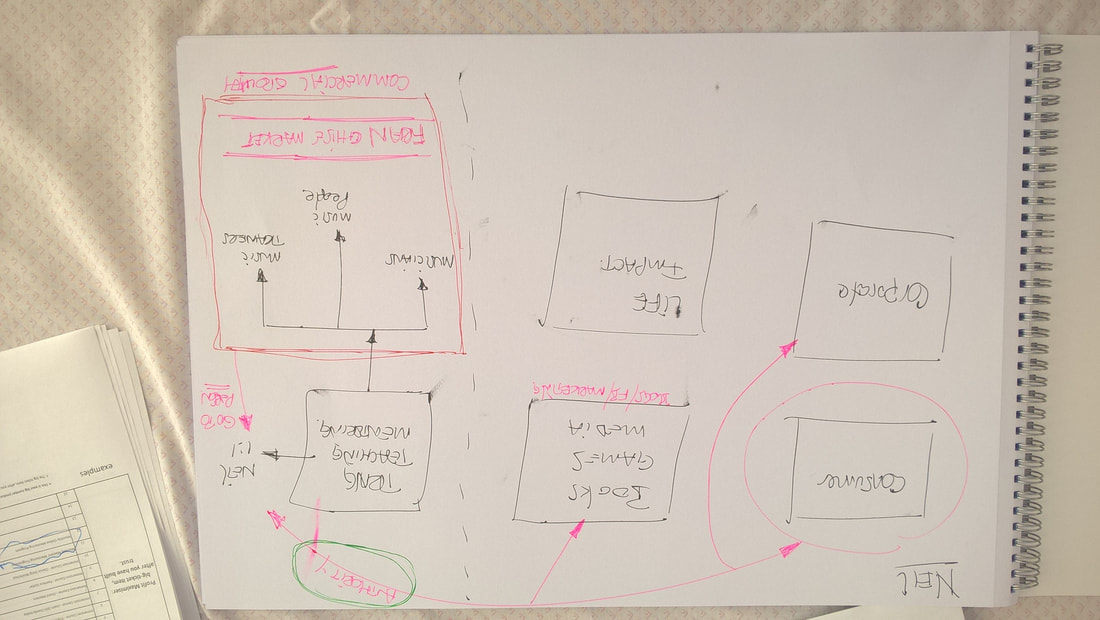
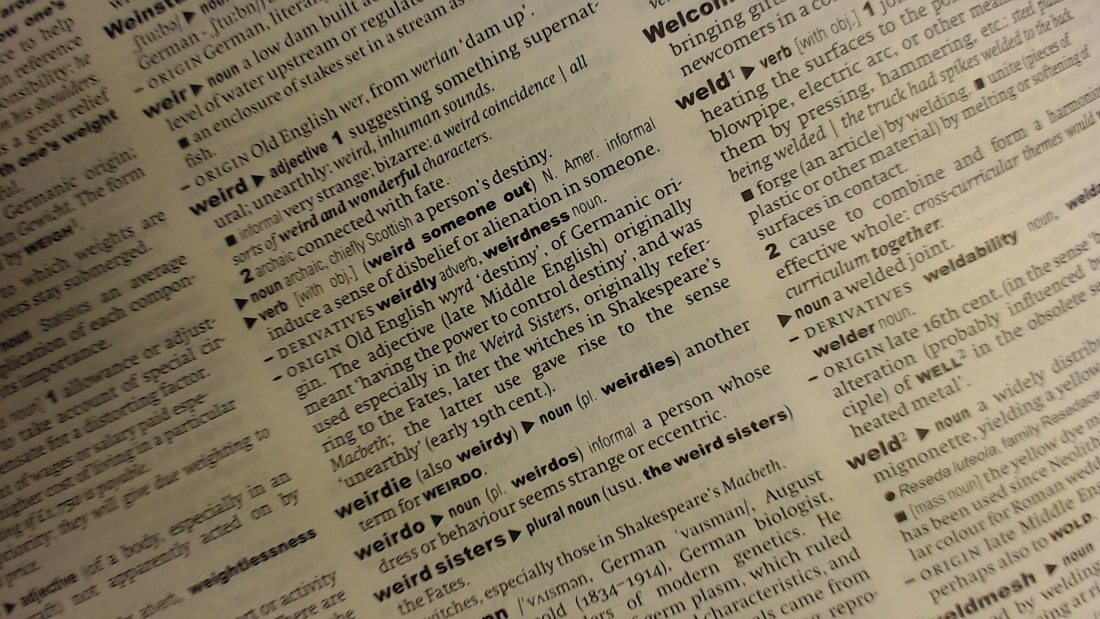
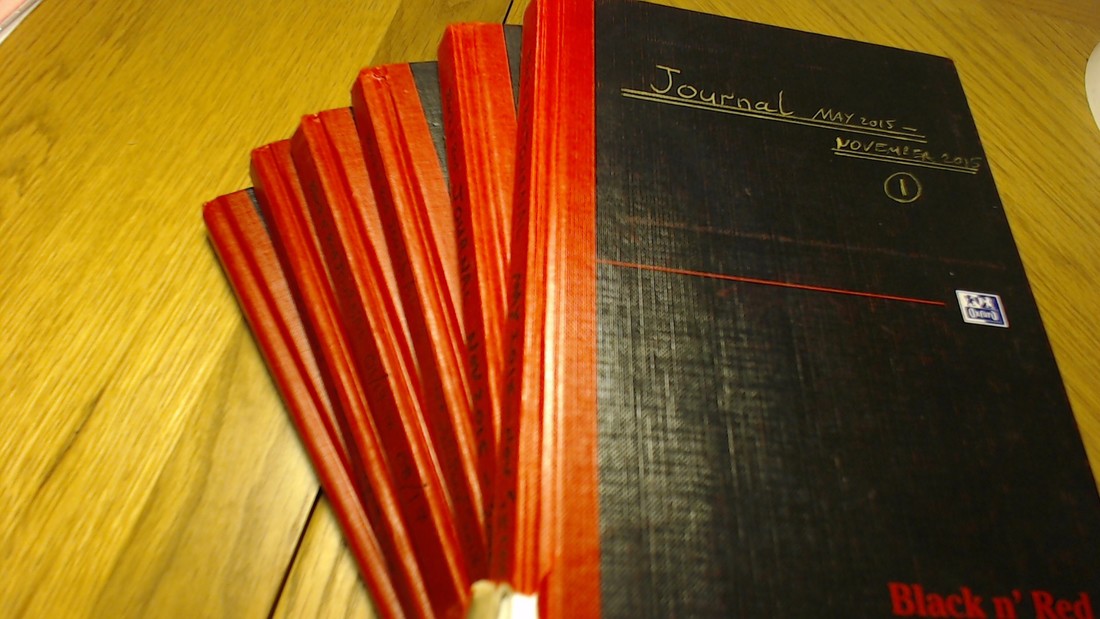
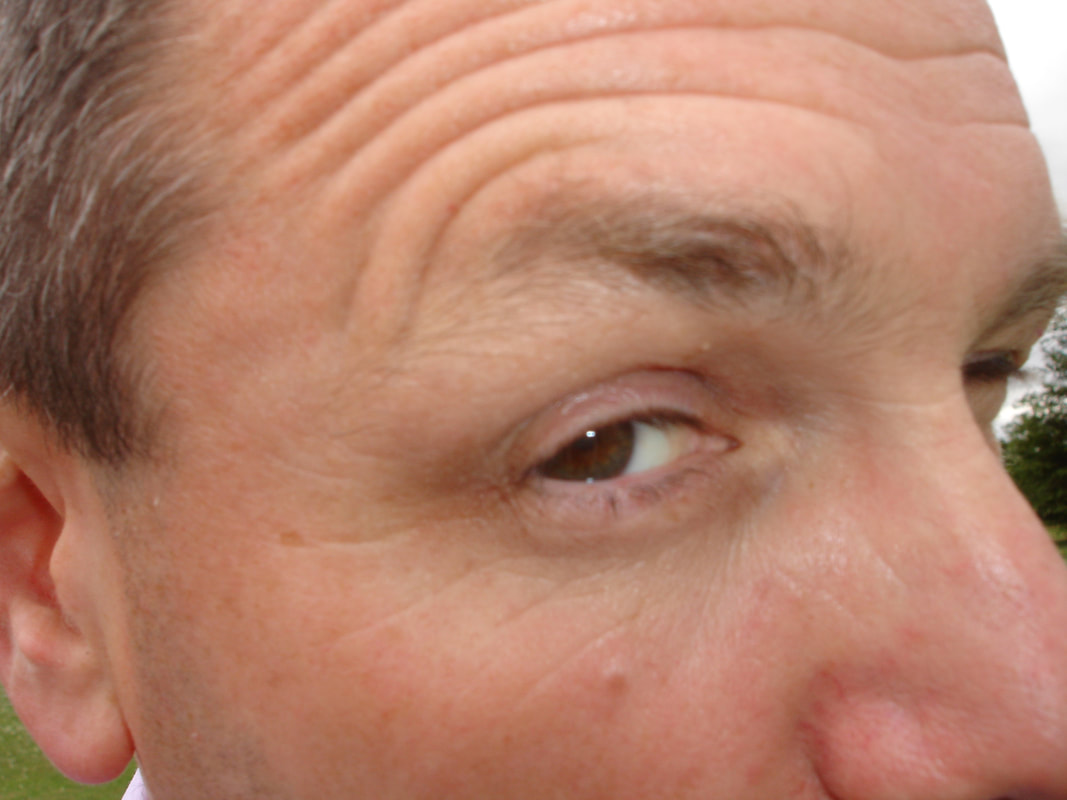
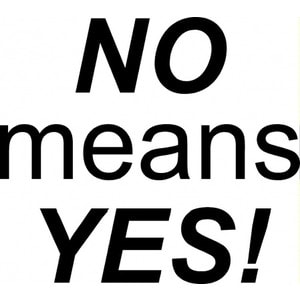
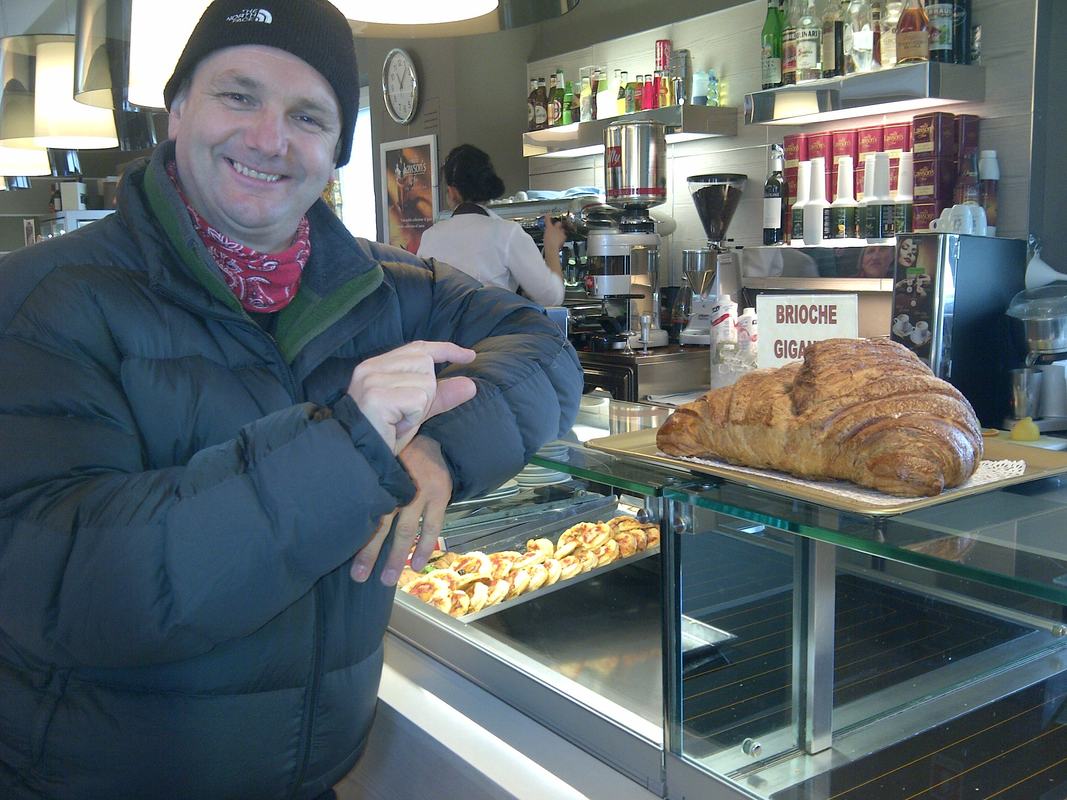



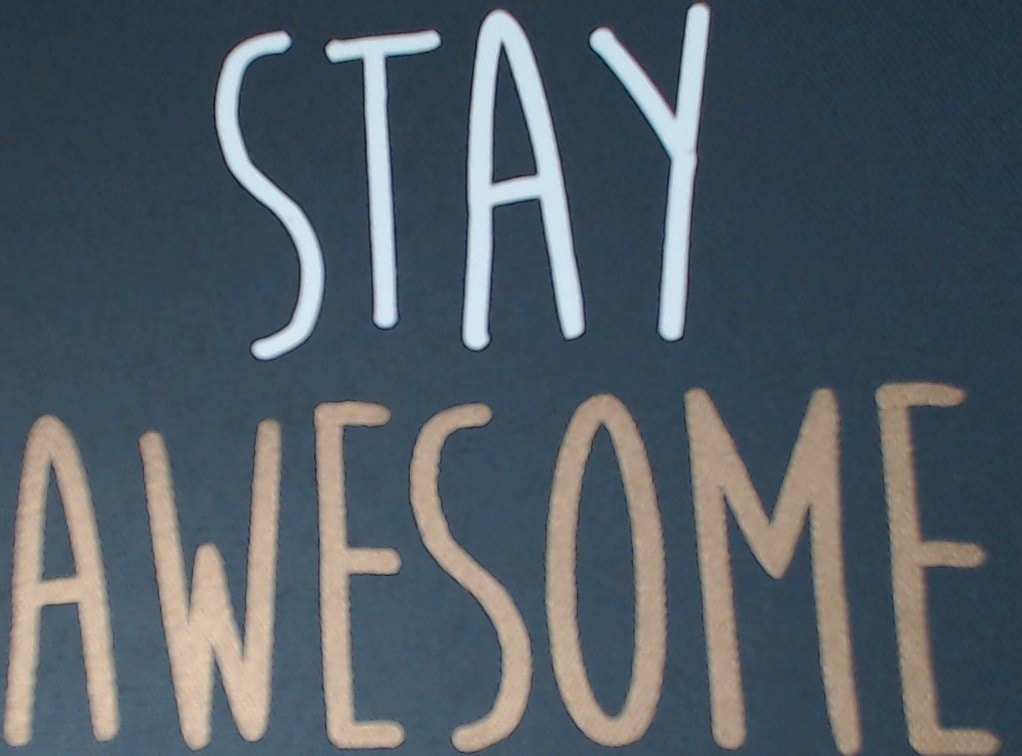
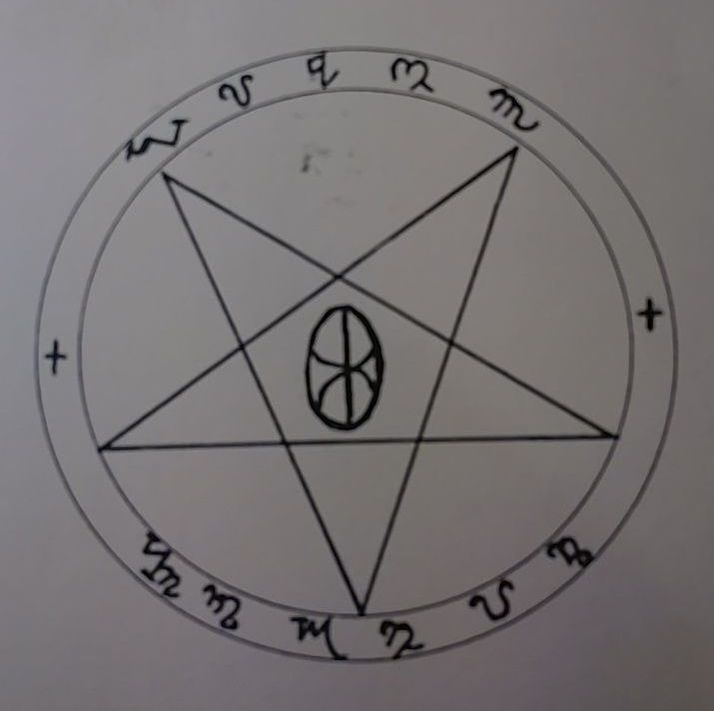
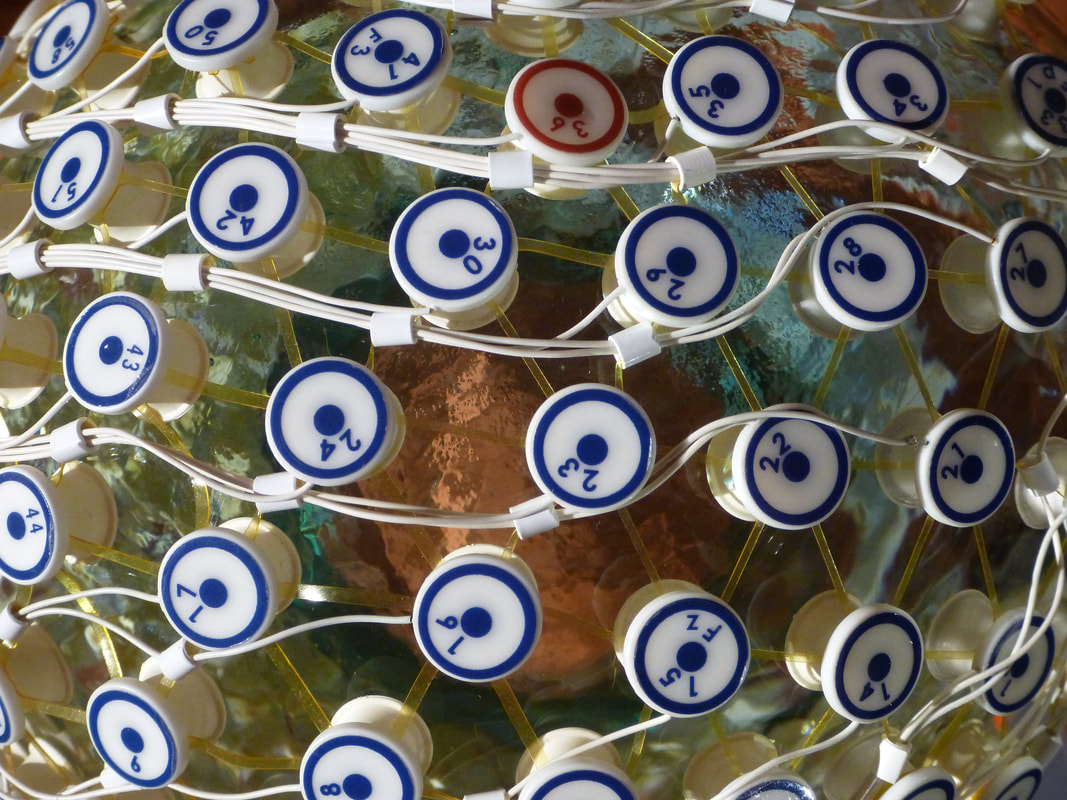
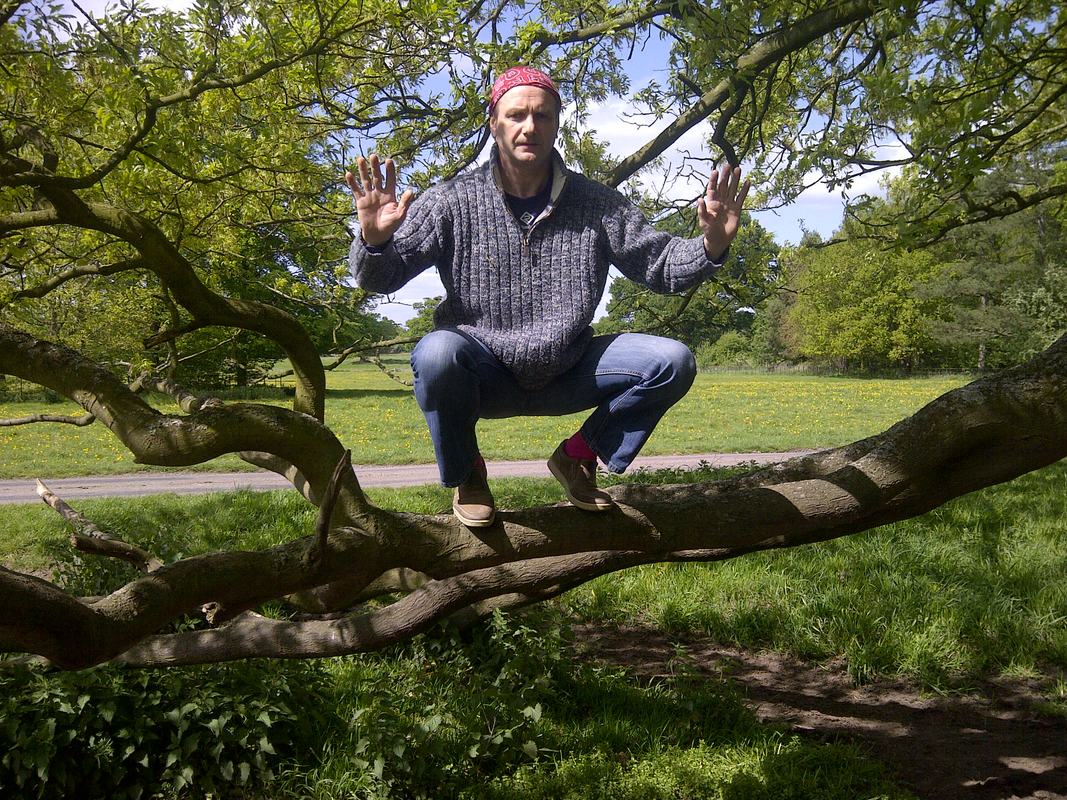

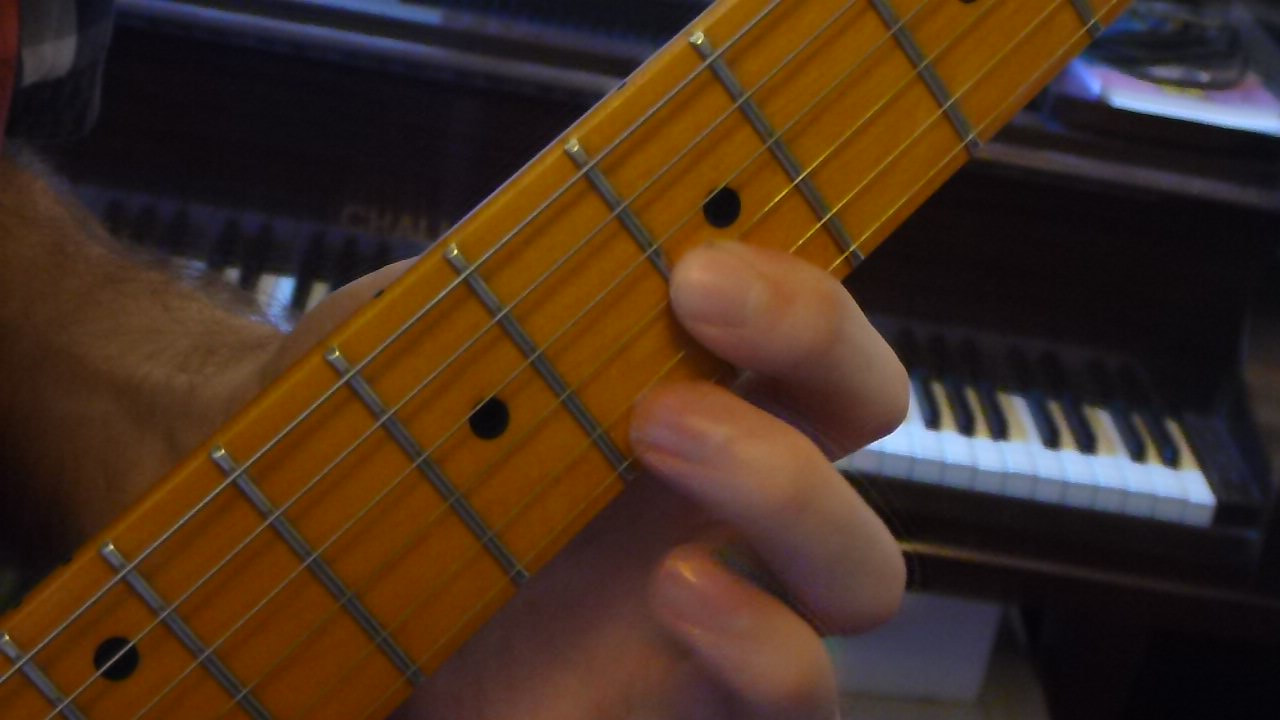


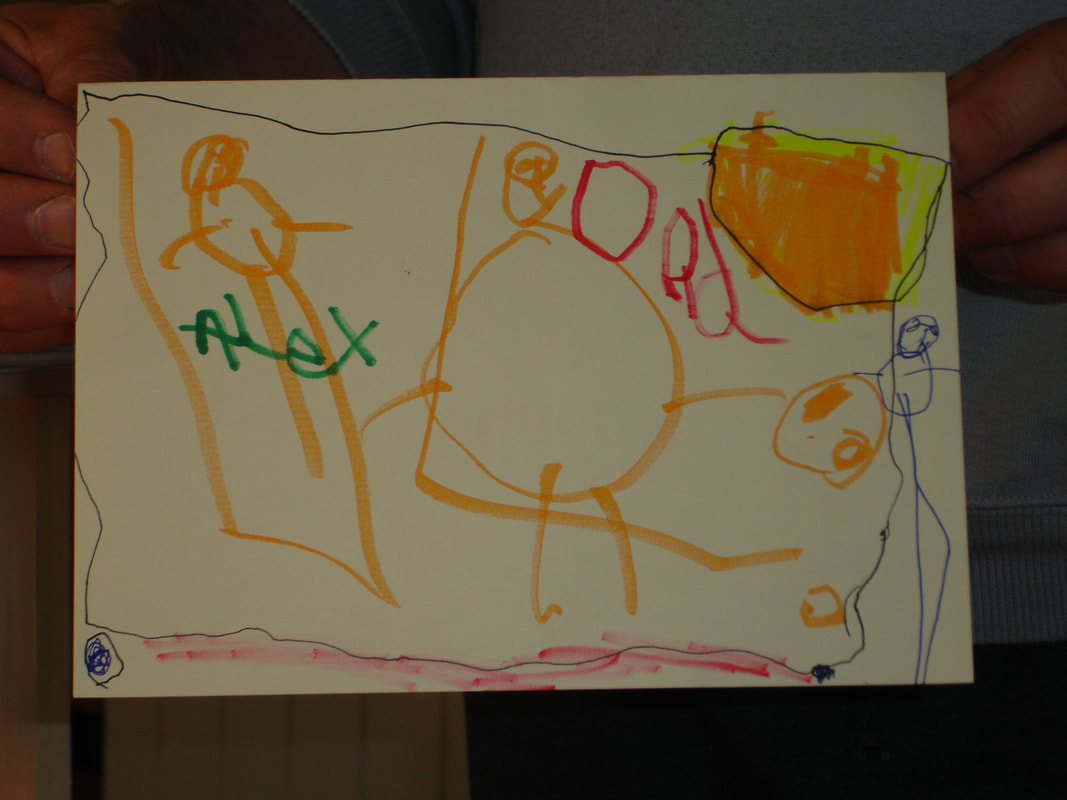
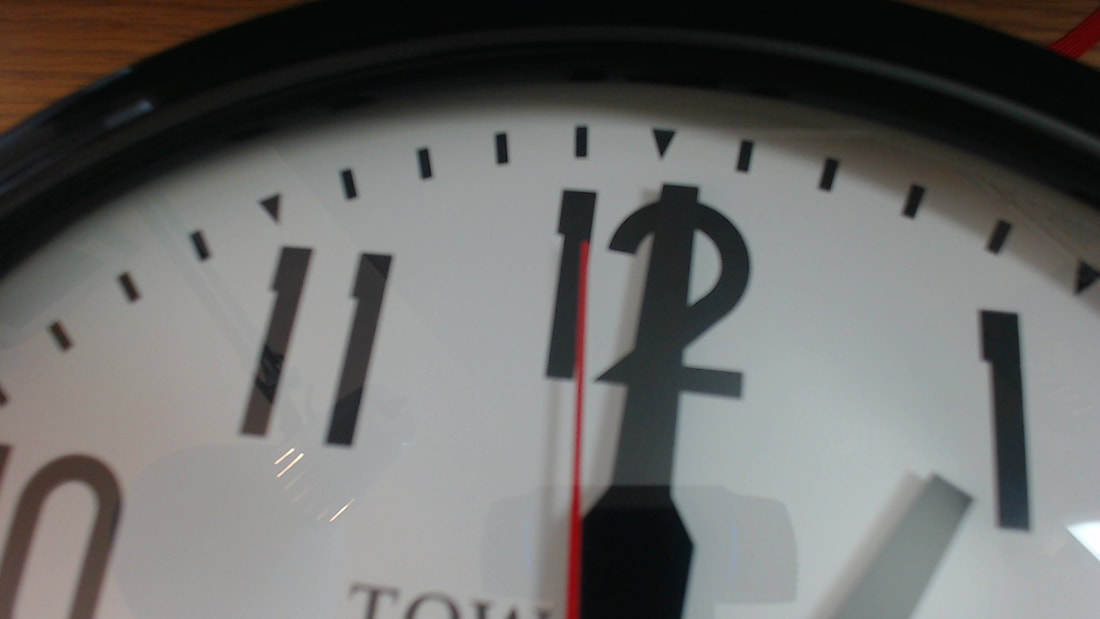
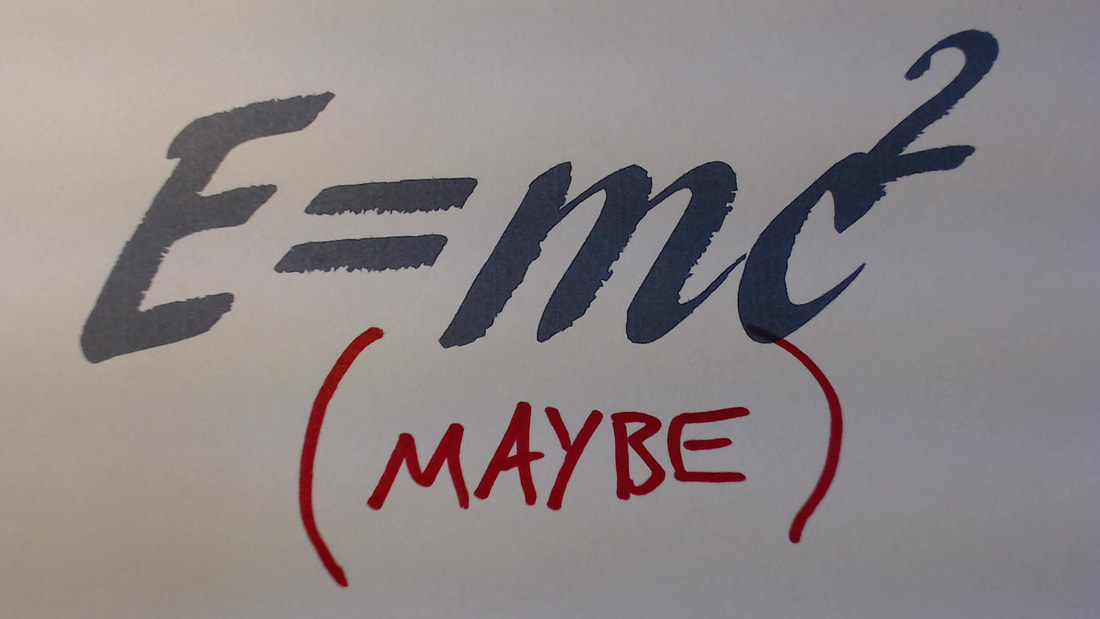
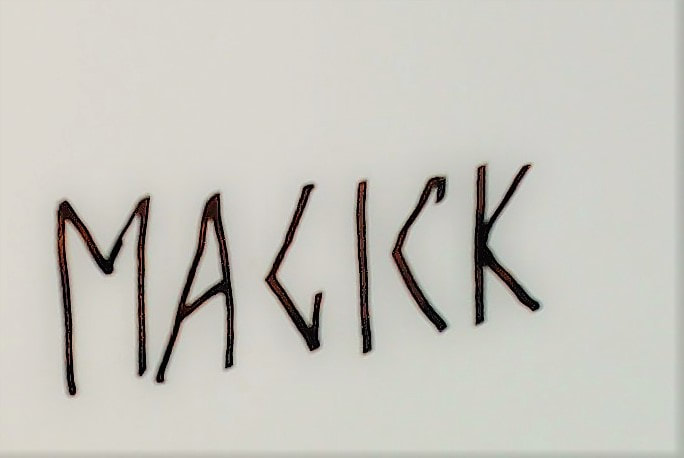
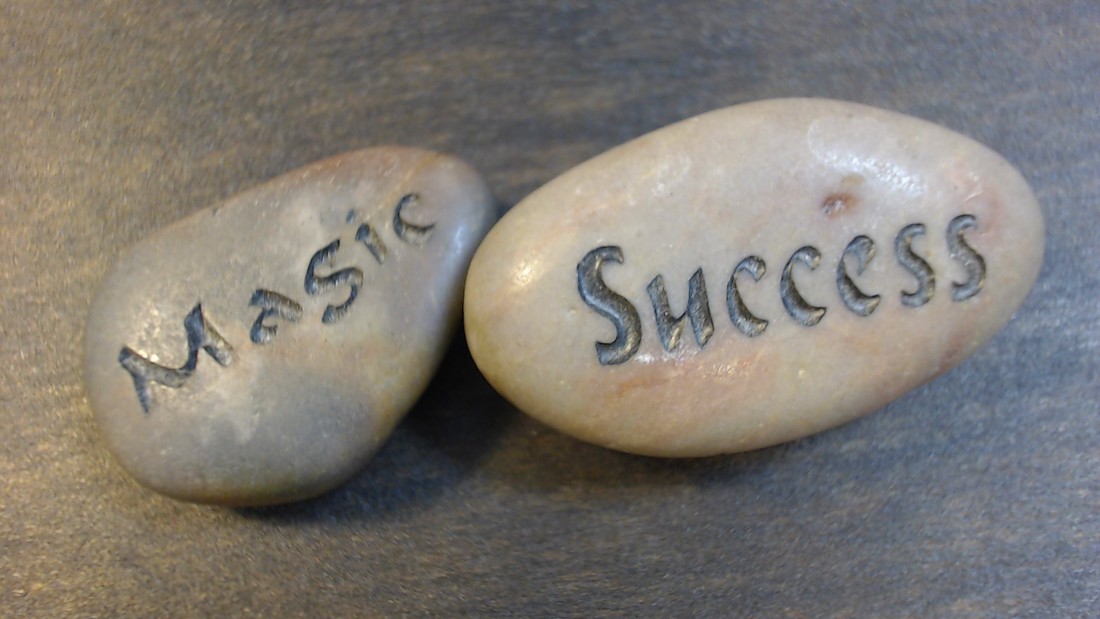
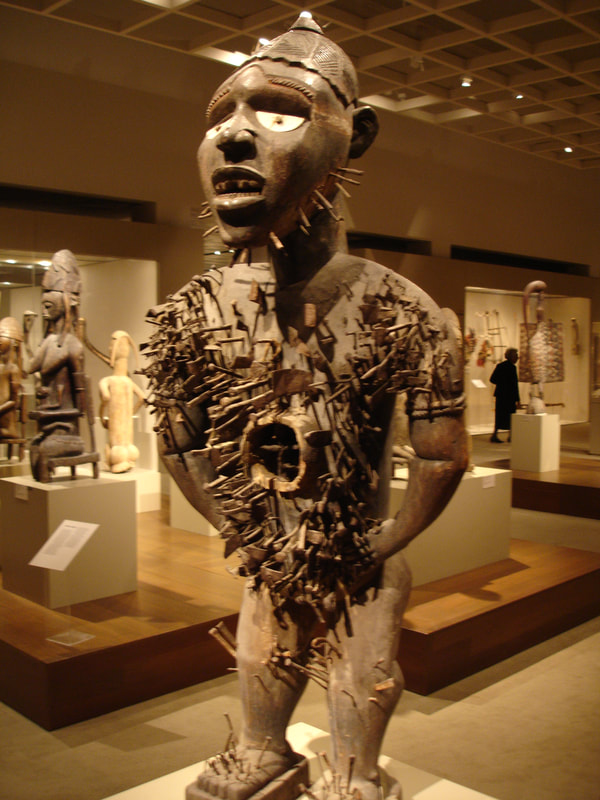
 RSS Feed
RSS Feed